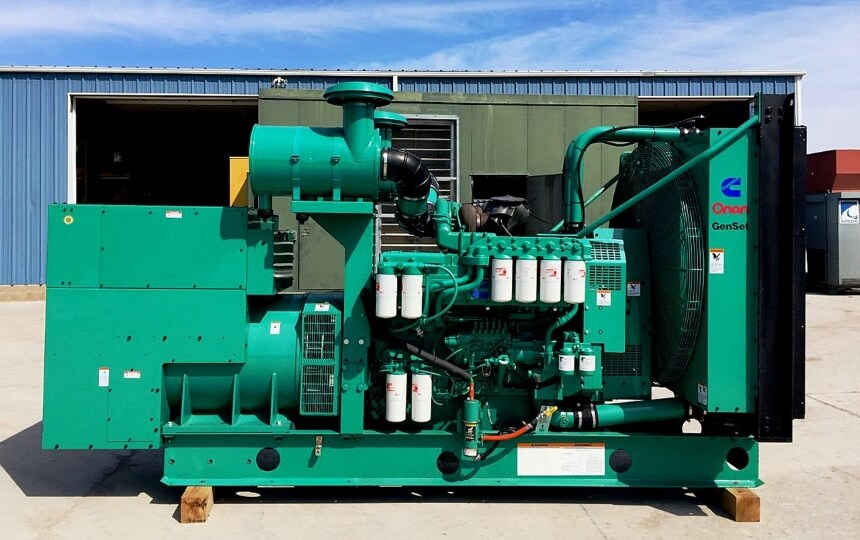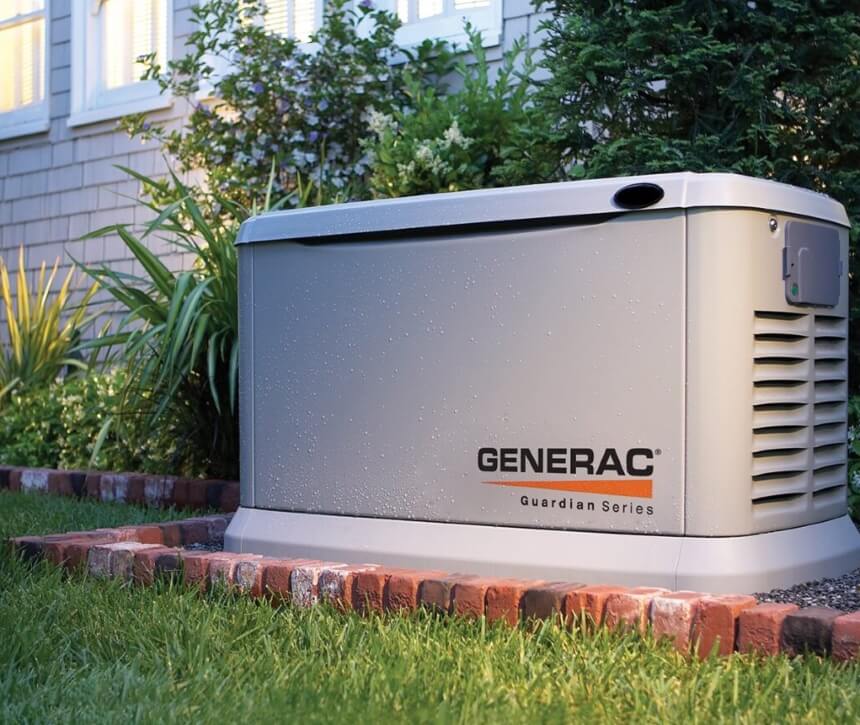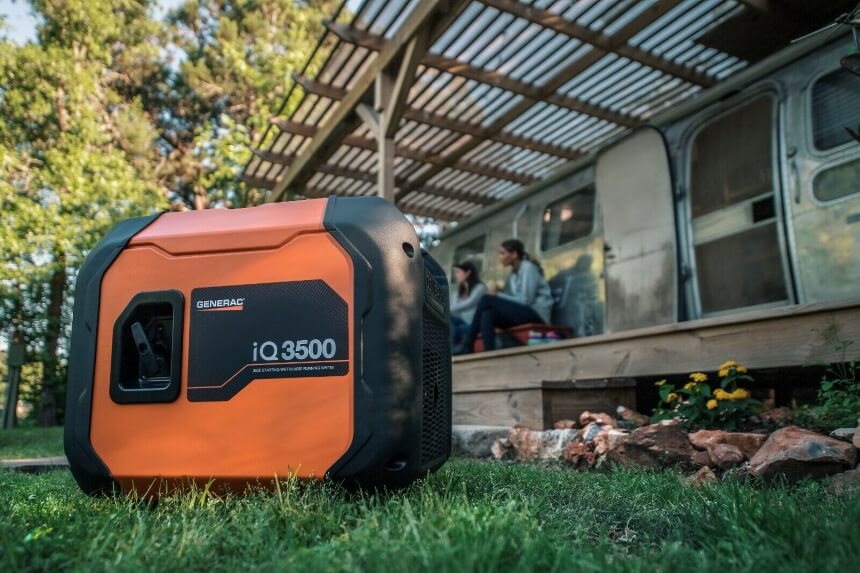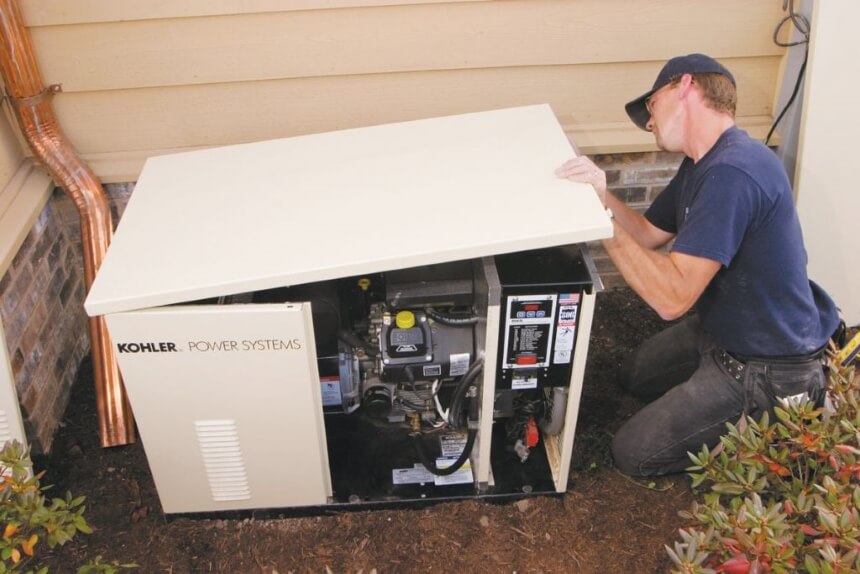
Do you work remotely and always have to be connected? or perhaps you just want to power your appliances and equipment in an RV, motorhome, during power outages, or on a construction site. If so, you need an electric power generator.
Asides from the acquisition cost, you’re going to have to get used to the running cost, most of which comes from fueling and refueling. However, the cost of running a generator can be high or low, depending on the fuel type. To know how much we’re looking at daily, this brings us to the question: how much gas does a generator use?
However, while trying to calculate the running cost of using a generator, asides from trying to know how much gas does a generator use in a day, the first step is to consider some other expenses apart from its acquisition, such as installation, for example.
Taking this and other elements into account, in this post, we will try to know the real cost of having and maintaining a generator. But first, we will explain what this equipment is and what types there are.

A generator works with the alternator, capable of transforming mechanical energy into alternating current electrical energy, and the engine, which makes the alternator move.
Its operation depends on various types of fuels, including gasoline, propane, natural gas, and diesel. Each one has specific characteristics, among which is the variation of its costs in the market, the performance, and the way of installation.
Electrical generators are highly used in industrial environments, as they guarantee operational permanence and help avoid risks.
In homes, meanwhile, they are very useful for having backup against possible power supply failures. They are especially useful for those who work remotely.
Also, they are valuable in homes in remote areas, where the electricity supply is non-existent or very poor and inconsistent.
The main advantage of this equipment, at home, is the protection of electrical appliances and other instruments that work with electricity. In this way, you will have the opportunity to keep the refrigerator, air conditioning, TV, and other appliances on following a power failure.
Among other benefits, we have:
Now that you know how convenient it is to have an electric generator, let’s delve into the types we have and the expenses that come with them.
There are different types of generators, from photovoltaic generators to electrochemical, electrostatic generators, and fossil fuel-powered generators. The latter is the focus of the article since they use fuel and are the most used in residences, on-the-go situations, commercial and industrial setups.
These can be divided into two: the portable and stationary or standby generators:

Many stationary generators are supplied with gas fuel through gas pipelines in homes or companies, which is more economical. However, in the event of a gas service failure, they will not work. It should be noted that the natural gas service is the safest in the world, with an effectiveness of 99.9% security of supply.
They provide excellent protection to the circuits of your home. They can power basic appliances during a blackout. These generators have economic and basic models, as well as more robust and higher-value versions, which are capable of supplying electricity to the entire home, a commercial or industrial facility for long periods.
These generators, being more powerful and having high performance, have a greater utility at a low cost. Most generator brands, such as Generac, deal in both fixed and portable generators.

Meanwhile, stationary ones tend to be more robust and guarantee a longer backup time.
There are two types of portable generators: the inverter generators and the conventional, open-frame generators. Inverter generators consume considerably lower fuel and are very quiet because of their closed-frame construction.
These types of generators generally operate with gasoline, diesel, and a mixture of gasoline with 2T oil. They are a perfect complement to most activities at home, work, or even when we are traveling. They can provide backup power for 4 to 10 hours; so they are ideal for domestic use or very small premises.
And, as you already know, they are usually cheaper than fixed ones. Their functionality lies in the fact that, due to their medium size, they can be carried and used everywhere, as long as you have fuel to make them run. Their uses are varied, standing out in domestic or industrial environments. They use all types of generator fuels, ranging from gasoline, propane, natural gas, and diesel.
Let’s tackle the main question: how much gas does a generator use? We will verify the average expenses based on various fuel types, which will serve as a fairly accurate reference.
As you already know, both portable and stationary generators can run on gasoline, gas, or diesel. Next, we will review the costs of each to estimate how much we would spend.
As we can see, gasoline and diesel fuels are the most fuel-economical. So, would you buy a gasoline or diesel-fueled generator? To decide, let’s see other benefits of the two type of generators:
| GASOLINE generators | DIESEL generators |
| More silent | Noisier |
| Lighter | Heavier |
| Lower amount of emissions | Greater amount of emissions |
| More need for maintenance | Less maintenance |
| Lower engine durability | Longer engine durability |
| Lower price | Higher price |
| Ignition uses a spark plug | Its ignition is compression |

Maintenance: Do you want your unit to always perform as it should? It will be important to maintain the equipment, regardless of the type of fuel, with preventive maintenance to avoid power losses or increased fuel consumption. Annually, portable generators cost between $150 to $180 in maintenance. However, for standby generators, the cost of maintenance varies from $200 to $300 semi-annually.
Some checks must be done frequently, such as external cleaning of the equipment, checking for heating, ventilation, and observing abnormal noise, friction and vibrations. And there are other annual or less frequent maintenance which have to be done with the support of professionals, such as cleaning and maintenance of the interior and checking the balance of the rotor.
Electricity generators are reliable backups for periods of an emergency such as during a natural disaster. They are ideal for outdoor use in areas where there is no access to electricity or during a blackout. However, like there are costs for using power from the natural grid, the cost of fueling a generator can be high or low, depending on the type of fuel the generator use and the number of hours you use it a day.
So, how much gas does a generator use? The cost of fueling a medium-sized portable or standby 5 to 7kW generator varies from $1,400 to $14,000 annually. As we have seen, diesel generators are the most fuel economic types, with an average of $32.4 spent on fuel per 24 hours. Gasoline generators come next with an average of $40.5 spend on fuel per 24 hours. Propane generators are more expensive to fuel. You’ll spend an average of $64.7 on fueling per 24 hours.